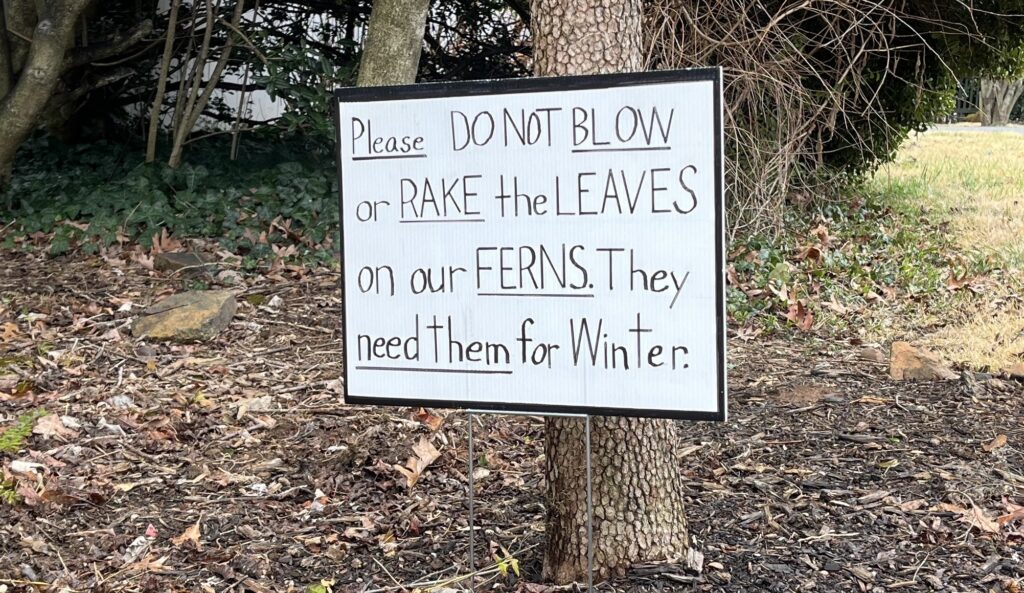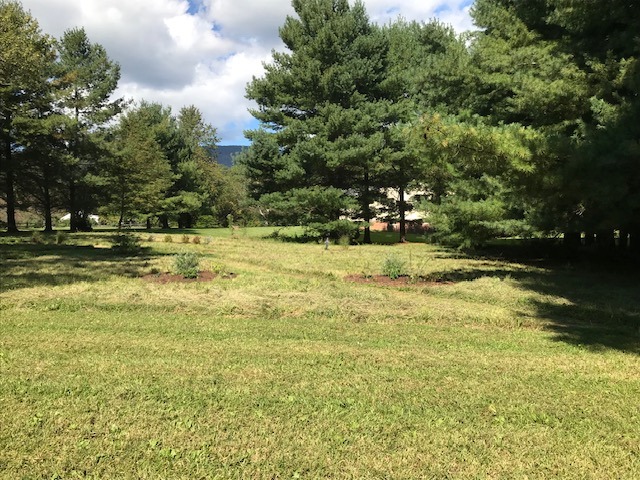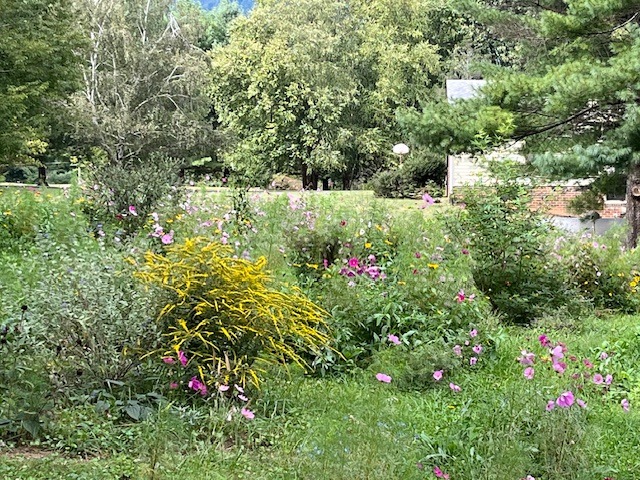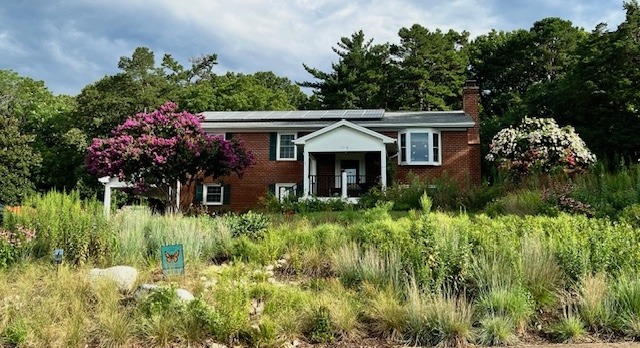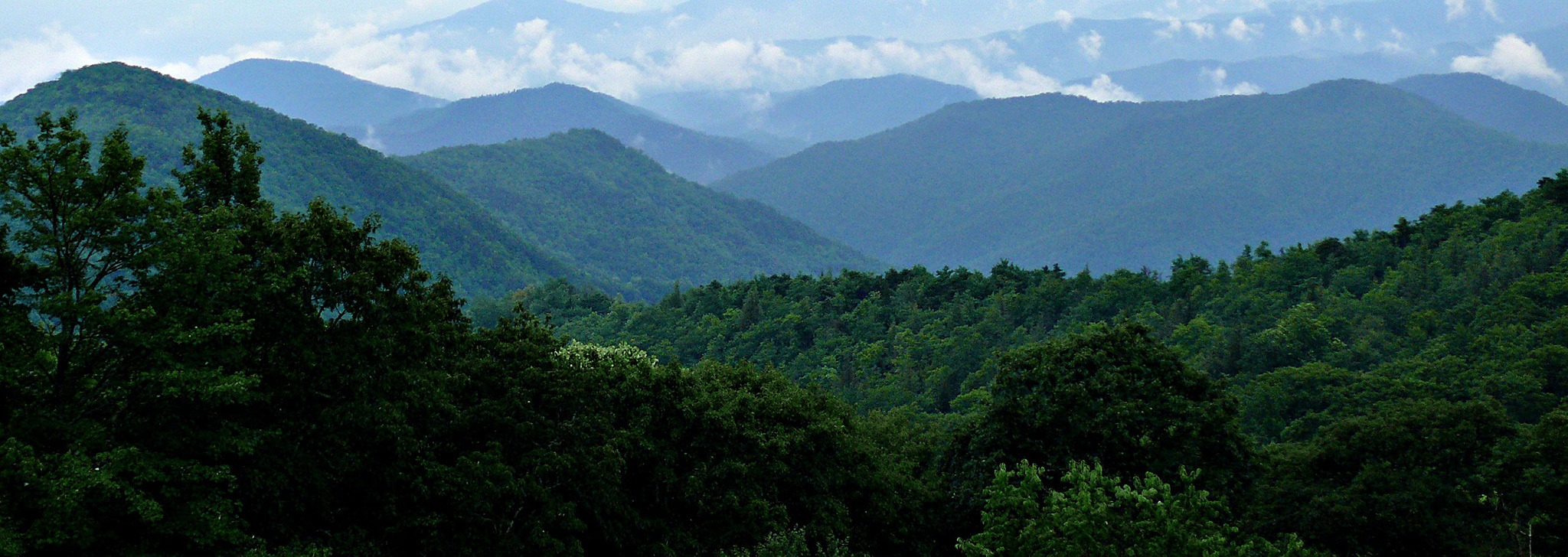
Ministry for Earth Newsletter
Gardening & Nature
Invasive Plant Online Workshops Presented by Blue Ridge PRISM
Tuesday March 26 1pm-3pm: Identification of Invasive Plants
Wed March 27 1pm-3pm: Management and Control of Invasive Plants
Workshops are $10 each. They will be recorded and those who register will receive access to the recording. Contact to register: www.blueridgeprism.org
Green Projects For Kids
Butterflies, bees, and hummingbirds – Oh, My!
Plant a few seeds or buy small plants that will attract creatures that come for the nectar and pollen of the plant’s flowers. You can plant them in your yard or in a flower pot, using potting soil. Place your pot or plant your seeds in a sunny spot and water it when it is dry. Good native plants to choose are Black-eyed Susan and Bee Balm for butterflies. Hummingbirds like cardinal flowers (small plants), coral honeysuckle (a vine) and scarlet bee balm (tall). The part of the newsletter about Native Plants will tell you where to buy seeds and plants. Try to identify the butterflies and hummingbirds that visit your plants.
The Whys and Hows of Composting
There are several important reasons to consider composting: It fights climate change by reducing carbon emissions; reduces erosion which improves soil, plant & water health; reduces pollution by reducing the need for chemical pesticides; and extends the life of landfills.
If you don’t have the time or the space to do your own composting, we have a great solution for you! A local business – Black Bear Composting – makes it super easy. They provide a bin (small for household food scraps; large for yard waste), pick up your composting every two weeks, and once/year offer free finished compost all for $25/month or less. For more information go to https://www.blackbearcomposting.com
Conservation Resources for Homeowners Program:
The Thomas Jefferson Soil & Water Conservation District offers a ton of useful information and even more exciting – they will help homeowners pay for conservation projects.
We have at least two church members who have taken advantage of these great programs – Ellie Syverud turned her side yard into a wildlife meadow and JJ Towler turned her front yard into a rain garden & wildflower meadow.
Available projects include:
Conservation Landscaping (native plantings of meadows, mulched beds, tree plantings) – 80% of costs up to $7,000
Rain Gardens – 80% of costs up to $7,000
Dry Wells – 80% of costs up to $7,000
Impervious Surface Removal – $5.00/square foot removed up to $20,000
Vegetated Stormwater Conveyance – 80% of costs up to $20,000
Rainwater Harvesting Systems (250 gallon min) – $4.00 per gallon treated in a 1-inch storm up to $20,000
Bioretention Facilities – 80% of costs up to $30,000
Infiltration – 80% of costs up to $30,000
Permeable Pavers – $14/square foot installed with a maximum payment of $20,000
Green Roofs – $20/square foot up to $30,000
Learn more at: https://www.tjswcd.org/best-management-practices-homeowners/
The Importance of Bees and How to Support Them
Bees are essential for the health of people and the planet. They are the greatest pollinators, providing high-quality food, honey, and other products. One third of our food production depends on the pollination of bees; they help with food security. They maintain biodiversity and contribute to climate action. To learn more, go to https://foe.org/blog/why-are-bees-important/
An easy way to help protect bees, is to donate to Pollinator Partnership (pollinator.org). It is a non profit organization that works to promote the health of pollinators – bees as well as other insects – through conservation, education, & research. The organization has a 4 star rating from Charity Navigator.
Do you live in a community with an HOA that restricts how you landscape your yard? You will be interested in this pending legislation! – A group of homeowners in Virginia is trying to change state law to protect their right to install environmentally-friendly landscaping on their property, according to a recent Reddit post recruiting users for the project.
HOAs often stand in the way when residents want to make their homes and gardens more eco-friendly. While native plants are cheap and easy to maintain thanks to their low water needs and good for the environment because they feed pollinators, they’re also a deviation from the suburban standard of a flat turf grass lawn — and HOAs tend to push back.
Nature Forward (formerly known as the Audubon Naturalist Society) is partnering with local Virginia advocate Melinda Soltys to advocate for a change in Virginia state law to ensure community associations cannot prevent homeowners from installing more environmentally friendly, low-impact landscaping.
To lend your support for this legislation contact Nature Forward or your State legislators.
What is the simplest way to plant trees and be climate active every day?
Use Ecosia as your search engine and you can plant trees without lifting a finger. They grow over 500 different native species where they are needed most; planting trees in over 35 countries in collaboration with local organizations. Go to https://www.ecosia.org to learn more.
Native Plants – What’s the Big Deal?
There are many important reasons for using native plants. They include:
LOW MAINTENANCE They do not require artificial chemical fertilizers and pesticides, making your yard safer for birds, helpful insects, and other wildlife, in addition to pets, and CHILDREN.
CARBON REDUCTION They reduce climate warming by reducing carbon dioxide in the atmosphere; trees are especially effective at this.
WATER CONSERVATION Because they are adapted to our area they don’t require watering. They are also useful in rain gardens where they reduce run-off and decrease flooding.
POLLINATOR SUPPORT They provide nectar and pollen as food for pollinators, which are needed for bountiful production of 1/3 of the plants we eat. In addition to bees there are many butterflies, moths, and hummingbirds that serve us as pollinators.
BEAUTY & JOY CREATION You can’t beat the joyful feeling that wells up in your soul when your exquisite pinxter flower (native deciduous azalea), cheerful columbine, or exuberant Joe-Pye weed blooms!
What should I plant?
ASK OUR OWN WALTER! Visit the Native Plant Garden behind Summit House and ask Walter Hoffman, our own garden expert, for suggestions. Watch for an opportunity in April to get free seeds harvested from plants grown in our UUCville Native Plant/Pollinator’s Garden.
THE XERCES SOCIETY NATIVE PLANTS FOR POLLINATORS LIST
For an online, printable list of plants suitable for the Mid-Atlantic region, the The Xerces Society for Invertebrate Conservation offers a native plant and seed directory.
- Go here https://xerces.org/pollinator-conservation/native-plant-nursery-and-seed-directory
- At “Filter by State” choose VA and click on Apply.
- Click on the picture on the left of the screen.
- At the bottom of the words beside the picture click on “Download as PDF.” You can print this chart which contains a wealth of information about appropriate plants.
Where do I get Native Plants?
Many local Nurseries and Garden Centers carry native plants and seedlings for sale and have them labeled as such. These include:
- Hummingbird Hill Native Nursery, 4190 Free Union Rd.; opens in April; has a bi-monthly on-line newsletter.
- Blue Ridge Farmers’ Co-Op (formerly Southern States Co-Op), 810 Harris St.
- Ivy Nursery, 570 Broomley Rd.
- Snow’s Garden Center, 1875 Avon St.
- Greenhouse Treasures: does business over the internet.
Native Plant Sales:
Sunday April 28 1pm at Ivy Creek Nature Center, 1780 Earlysville Rd. For a list of available plants email woodchildj@gmail.com. PLAN TO ARRIVE EARLY TO BEAT THE RUSH!
Saturday, May 4 Piedmont Master Gardeners’ Plant Sale, Albemarle Square Shopping Center
More Resources:
Homegrown National Parks: a grassroots call-to-action to regenerate biodiversity and ecosystem function by planting native plants and creating new ecological networks; It is the largest cooperative conservation project ever conceived or attempted. https://homegrownnationalpark.org
How to start an indoor garden with these scraps from your dinner plate
https://www.washingtonpost.com/home/2024/01/31/growing-vegetables-herbs-from-scraps/
Thanks for reading our Newsletter!!
If you have questions about the content or suggestions for future topics, let us know environment@uucharlottesville.org

